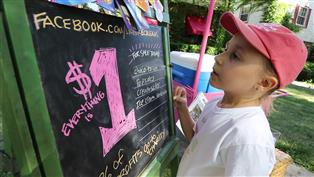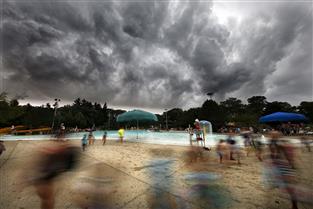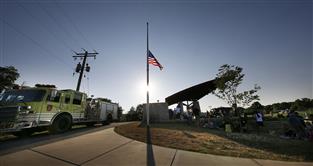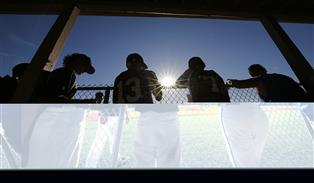Tosa considers targeted approach to sewer repair
Pilot program would show if strategy would work effectively
Looking for ways to minimize the cost of sanitary sewer system repair, the Department of Public Works is hoping to pilot a targeted approach to fixing leaky laterals on private property.
The public works director pitched the idea to the Budget Committee on Thursday.
For $1.5 million - a third from Milwaukee Metropolitan Sewerage District and the remainder from city funds - about 200 of the leakiest private laterals could be replaced, repaired or relined, Public Works Director Bill Porter said.
The program would determine whether significant gains can be made with targeted fixes. If so, that could cut down on overall costs and give the city more time to address spots with smaller leaks.
"We could provide much more relief much more quickly," he said.
However, it's entirely possible that by plugging one leak, the water will simply migrate to the next leaky joint, Porter said.
"Then we have made progress, but haven't solved the problem," he said.
Either way, time is of the essence.
Two weeks ago consultants told aldermen that fixing sewers in the East Tosa neighborhood so they comply with MMSD standards and reduce the frequency of basement backups would cost $32 million to $84 million. MMSD requires that Wauwatosa get some sort of program going in 2012 to reduce infiltration of clearwater into the sanitary sewer.
Some laterals on residential properties in the East Tosa sewershed - generally Wauwatosa Avenue to 60th Street and Center Street to North Avenue, as well as a small slice of Milwaukee to the east - as well as one to-be-decided sewershed in a newer area of Tosa would be the test areas, Porter said.
Since East Tosa includes 4,000 laterals, less than 5 percent of the laterals there will be fixed. Committee members saw a need to get going but worried that some property owners will receive lateral repairs on the city's dime now, while others may have to pay some or all costs if the program grows in the future.
"You have to start somewhere, and it's unlikely you'll find an entire block that would volunteer to pay for work on their laterals," Alderman Craig Wilson said.
The pilot program, coupled with soaker hose testing planned for this fall, are on the cutting edge of sewer investigation and repair, Porter said. It's likely other municipalities in southeastern Wisconsin and possibly across the country will be watching.
More from News and Features
- Anodyne Coffee plans to open location in Wauwatosa Village
- Wauwatosa Meetings: Aug. 4
- Video: Wauwatosa girl's curbside ice cream stand raises money for the hungry
- Wauwatosa News and Notes: Hands-only CPR training offered; Firefly Art Fair is Aug. 6-7
- Wauwatosa Ask Now: Why are there barriers and fencing along the North Avenue bridges over the Menomonee River?
- Mystery Photo Contest: July 28
- Wauwatosa gears up for National Night Out event, this year at the zoo
- Election 2016: Wisconsin's 4th District candidates weigh in
- Wauwatosa's Luther Manor residents share smiles through flower delivery
- Wauwatosa Police Report: July 17-23














